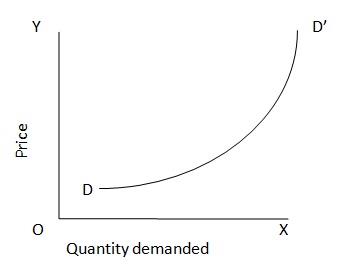Exceptions to the Law of Demand
According to Thorstein Veblen, some consumers measure the utility of a commodity entirely based on its price i.e., for them, the greater the price of a commodity, the greater is its utility for them. For example, diamonds are considered a prestigious good in society. However, the consumer will buy less of the diamonds, even if its price is low because with the fall in price its prestige value will go down. Similarly, at higher prices, the quantity demanded of diamonds by a consumer will rise.
Another exception to the law of demand was pointed out by Sir Robert Giffen who observed that when the prices of bread/potatoes increased, the low-paid British workers, in the early 19th century, purchased more bread/potatoes and not less of them. This is contrary to the law of demand. The reason for this is that these British workers consumed a diet of mainly bread/potatoes and when their prices went up they were compelled to spend more on given quantities of bread/potatoes. Therefore, they could not afford to purchase as much meat as before. Hence, after the name of Robert Giffen, such goods (bread/potatoes) are called Giffen goods.
Some times, people expect that the prices of certain goods would still rise in the future and hence, they demand greater quantities of such goods, even if their prices are higher at present.

Fig: Exceptional Demand Curve